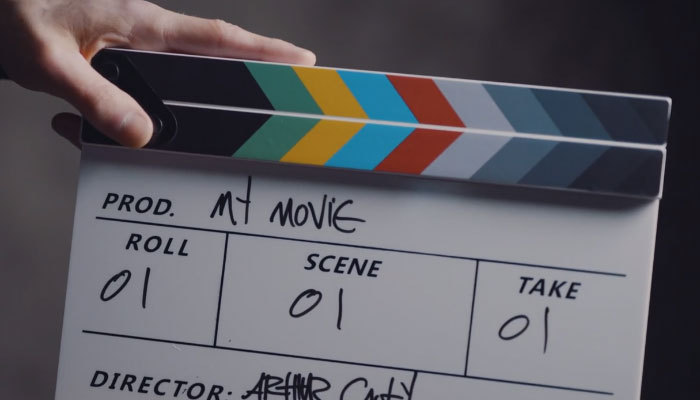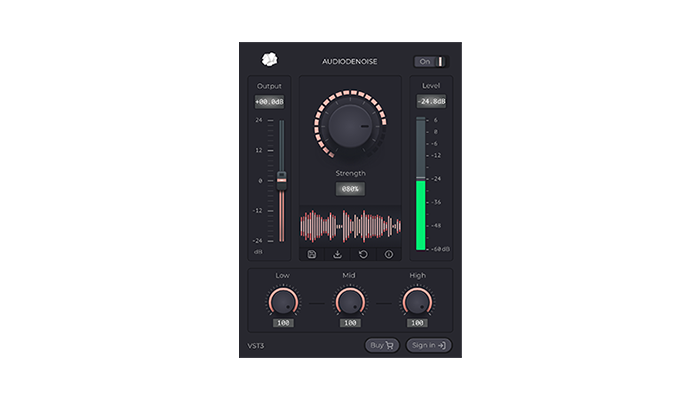Today we’re speaking with Oscar-winning editor, William Goldenberg, ACE about his work on the feature film Air, directed by his long-time collaborator, Ben Affleck and starring Affleck, Matt Damon, Viola Davis and Jason Bateman. Goldenberg has been a guest on Art of the Cut numerous times for films including The Outfit, News of the World, 22 July, Detroit, and Live by Night. He was nominated for an ACE Eddie and an Oscar for The Insider and received another Oscar and Eddie nomination for Seabiscuit. Then BAFTA, Eddie, and Oscar nominations for Zero Dark Thirty, which is the same year he won the Oscar for editing Argo. And another set of BAFTA, Eddie, and Oscar nominations for The Imitation Game.
AIR with William Goldenberg
Let's talk about music. There's very little score. Most things are needle drops, right?Yeah, I think there are 25 needle drops.
There is actually a fair amount of score. I'm glad you didn't notice it. We obviously bought all the rights to the needle drops to the songs, but we also bought the score.
All the score we acquired is from ‘80s movies. There are a couple of outliers that are from the nineties, and there's one current cue. I started temping the movie with stuff from the ‘80s: Three O’clock High, Desperately Seeking Susan – films like that. A lot of them were done by Tangerine Dream. There's some stuff from Jerry Maguire in there, which is '90s. We tried to be really accurate with the songs. It was ‘84 and before, but with the score we were using stuff that sounded like the period.
Originally, we were going to have a composer, and then I started temping, and Ben [Affleck] said, “This is great. This works so great for the movie. It gives an ‘80s vibe and it feels organic.” So, he said, “Why don't we just buy the temp?” I said, “Has anybody ever done that before?” We just decided to. So, we not only acquired all the music, but we acquired all the temp score as well.
I did one other interview at Sundance where they were going to temp the entire movie with one score from a Sergio Leone movie (Ennio Morricone, composer), but it didn't work out.I can't remember how many different movies there were, but it was several. A lot of it was Tangerine Dream.
The only actually original piece of music is the end credit music. We had about five or six weeks before we were finished, and I looked at Ben and said, “We don't have a composer and we have no end credit music. What should we do?”
It was a situation where it's going to cost X amount of dollars to buy a piece of music that's going to fit. So, we just contacted one of the guys from Tangerine Dream who still works. He was terrific and he did some end credit music for us.
I worked on a TV series last summer that had a director-actor-writer. Talk to me about the difficulties of that, the advantages of it, and how it worked specifically with Ben.Alex Convery wrote the original screenplay. Ben and Matt [Damon] worked on it as well, as did the characters. I know Jason Bateman added flavor to his role.
Chris Tucker wrote his role based on interviews and conversations he had with the real Howard White, to the point where almost everything that comes out of Chris Tucker's mouth is basically out of Howard's mouth. The scenes where he is late to the boardroom meeting with the Jordans because he was out getting a hamburger, what Mr. Jordan said to him about being the “only other brother in the room” when he was late, the thing about him being called a preacher, or seeing white people running the rain and thinking they were crazy, or a lot of stuff about Moses Malone in the opening scene – that’s all from Howard. It really was a collaboration with the entire cast.
Viola [Davis] improvised that line, “A shoe isn’t a shoe until my son steps into it.”
No offense to the screenwriters, but that's one of the best lines in the movie.I kept thinking what would be the button of that scene without that line – “Okay, thanks, goodbye”? It's such an incredible button and it's in every single piece of promotion.
What about the acting? For a director to direct himself?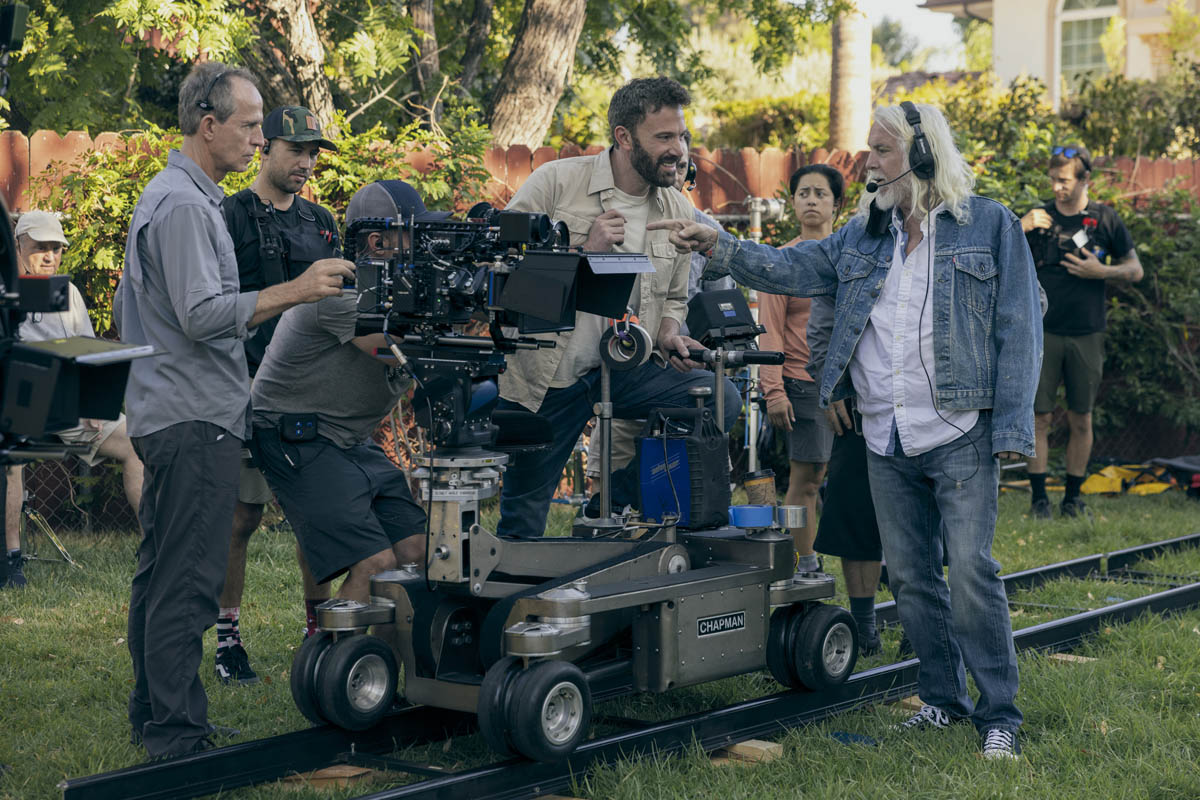
This is the fourth time Ben has directed himself – The Town, Live by Night, Argo, and this.
I asked him a lot about that when we did Argo, because I didn’t do The Town. He said that at the beginning, on The Town, it was really hard because you’re trying to do both things and it’s really hard to look at yourself objectively.
But he basically got used to it. On Argo – he didn’t do it so much on this movie [Air] - he was constantly criticizing himself in the third person. While looking at the screen he’ll say, “What are you doing?” He’ll do a take and if he can’t get around to the monitor – if he’s doing an action scene – they’ll bring him an iPad, or he runs around and watches the monitor.
He's one of the smartest people I’ve ever met in my life. No joke. He’s a genius, really. He just knows everything about everything. I'm saying that very objectively. It makes it look so effortless that it really does inspire a lot of collaboration.
I was always up to the camera. Ben would come in first thing in the morning before shooting, and we'd look at stuff, and we'd sometimes see that a certain transition doesn't work, or we need something in there. We need to get from A to B in a clearer way. What can we do?
Then Matt would come in and the three of us would sit around and say, “What about this? What about that?” Usually, they came up with the answer. They've been friends for so long that they have a communication telepathically.
For instance, take the scene where Sonny went to LA to see George Raveling and met him in the bar. The scene to just go from when David Falk hangs up on Sonny, and then we immediately cut to him arriving at the bar in LA. Nobody said, “Where are you? Who is this?”
So the part where Sonny goes, “Get me a plate ticket to LA,” and then there’s a scene where he leaves the Nike office and says, “I won’t be at the meeting tomorrow. I’m going to see George Raveling,” – we just made that up on the spot in the editing room. Ben and Matt said, “We’ll be right back,” and then ran out and shot it.
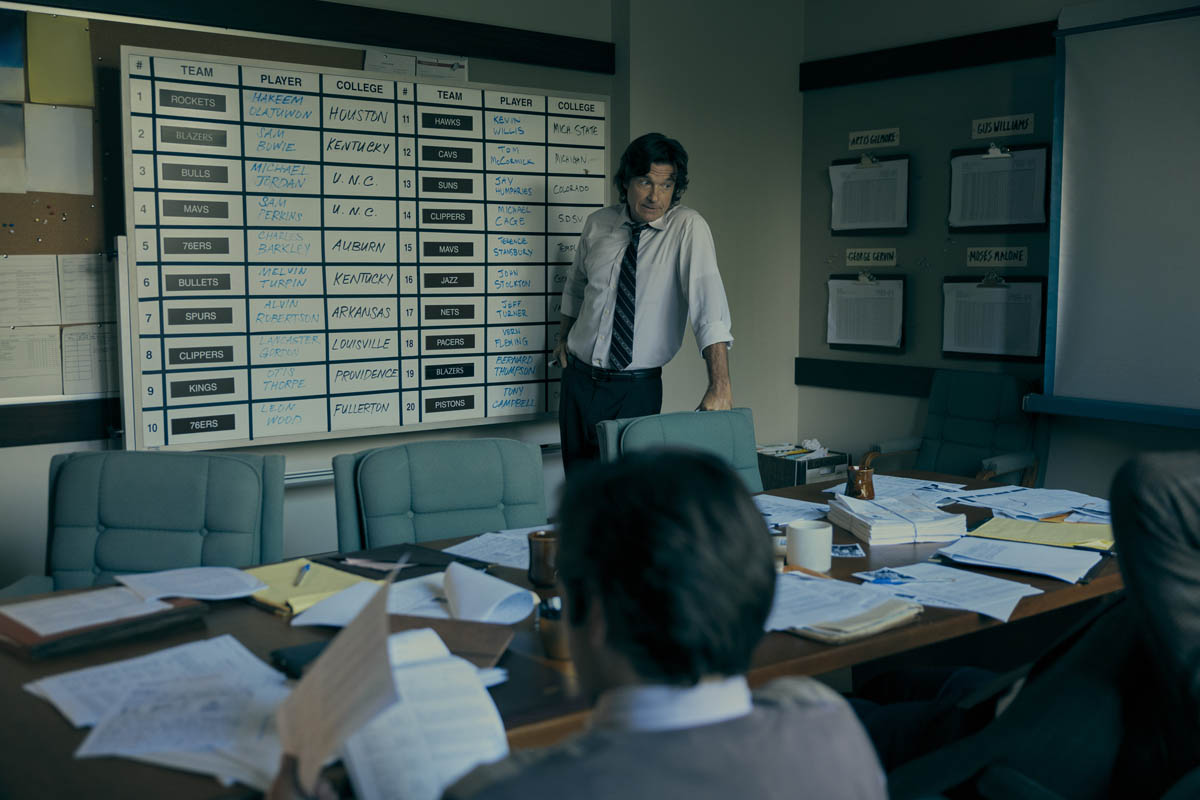
The Nike offices building, the production offices, and my editing room were all in the same building - as were several of the other little sets in this one building in Santa Monica - so they were able to go up and down. We would watch and cut footage and then show the crew cut scenes like five minutes after I cut them. It was certainly like nothing I ever experienced in terms of the immediacy of it and having them in the room.
In the end section – where we have the legends of what everybody did - the shot where Phil Knight's at his desk, that's Ben shooting himself with no crew. He just went up with a camera, literally pointed it at the desk, turned it on, went behind the camera, did his thing. That's what's in the movie.
It was supposed to be a 28-day shoot and we shot it in 23 days. That's just a testament to how great the cast was, how great the crew was, and how fast Bob Richardson [Director of Photography] is. We got done five days early.
The first day of principal photography was June 2nd, and August 2nd we had a friends and family screening. Then probably five days after that we had another one, and then we had a preview, and then we finished. It was just a whirlwind.
There's a bunch of archival in the movie. It's your one way of seeing Michael. Talk to me about trying to find that, revise it, and organize it so you know where it is.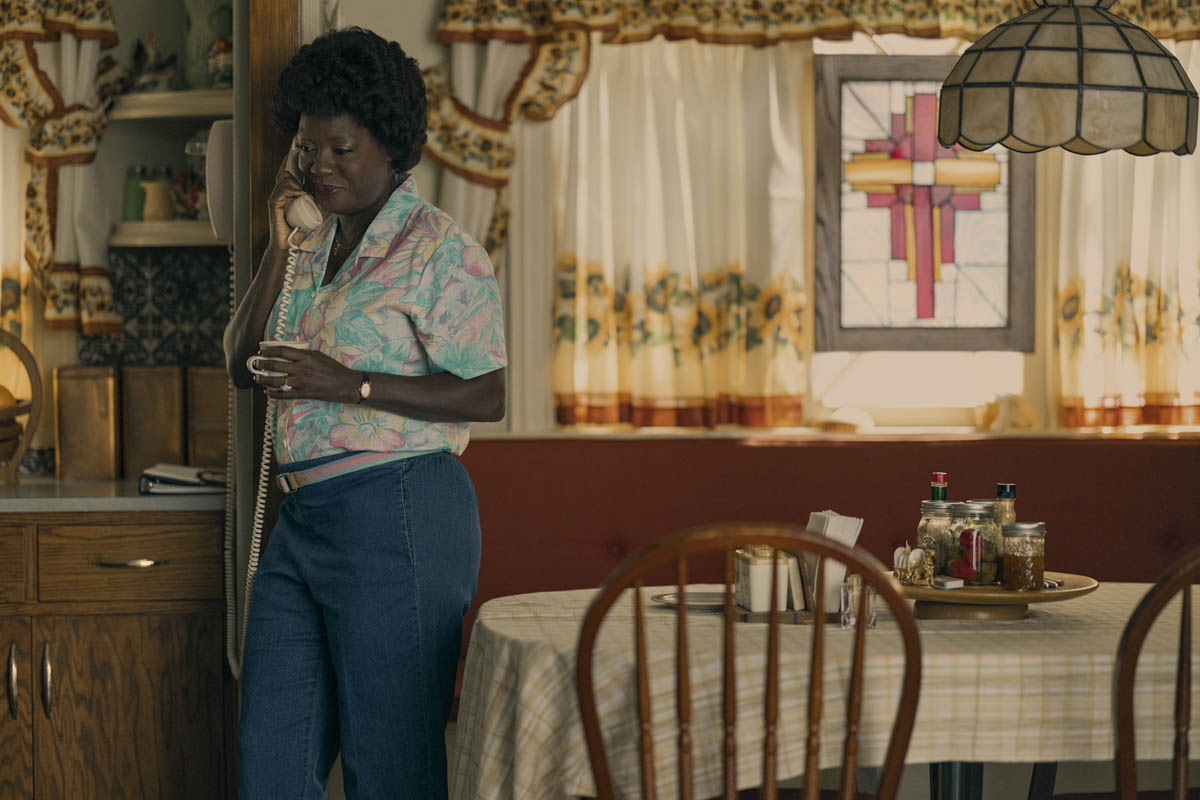
It was a lot of footage to go through.
There's archival on the opening, commercials, and current events - cell phones, who's running for president. The movie is about pop culture references. We combined that with stuff that Ben and some of the other crew members shot at the Nike offices on either 8mm or 16mm footage.
In the scene when Matt [Damon] is at the high school basketball game, some of that is shot on 16mm and some of it is shot on an Alexa in order to blend the two together. So, the first couple shots start in 16mm and then it slowly goes to Alexa.
But with the archival in the boardroom sequence, when Matt is pitching Michael [Jordan], and he says, “Let me tell you about your future,” and we’re seeing into the future. That’s in the script like that, but it was much more weighted towards the archival and much less on Matt. Almost 75% of it was written to feature archival footage.
When I cut it that way, it was good, but it also felt like, “Why aren’t we on Matt?” It started to feel like a highlight reel – like you can go on Youtube and see all these great clips of Michael doing all these extraordinary things. So, it felt like a documentary. We got outside the movie.
We just kept paring it back, and then it became apparent that it needed to be more like snapshots, because so much of it was what people knew already. You didn’t have to linger on it. We didn’t want it to become a highlight reel, so we tried to make it story-driven, story-illustrative, and not just show cool stuff that Michael did.
There were specific rights issues. Sometimes, we were able to use stuff for fair use. Sometimes, we had to acquire the rights to things, so we kept having to replace things that we couldn’t use, and then adjust accordingly.
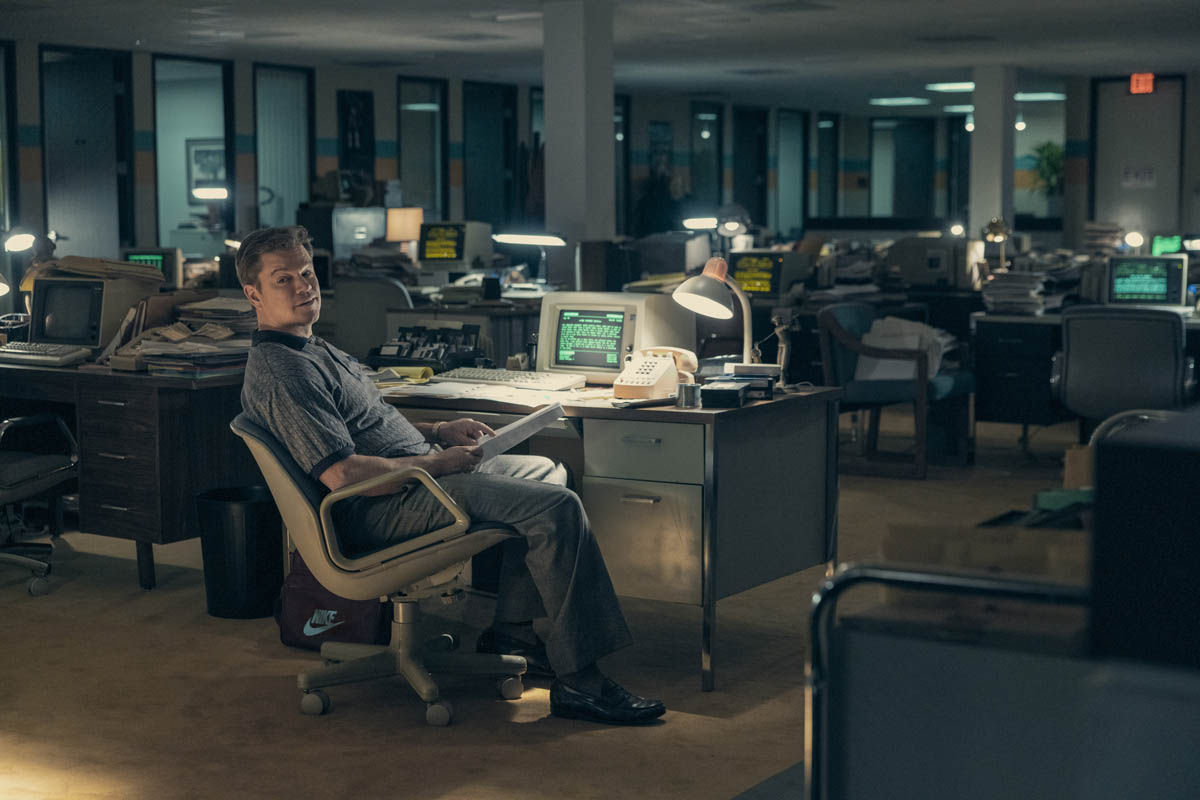
It was an ongoing process, literally right up to the very end. Even beyond the mix we would still have instances where ESPN said, “The Roy Firestone clip is a problem.” Then we had to talk to ESPN about it and we got permission. We were supposed to use SportsCenter footage from 1984 but we couldn’t find any – we only found ’85 and ’83. The legal department at Amazon and at Artists Equity certainly had a lot to do with that.
There was some temp music we couldn’t find who owned it, because it’s from the mid-‘80s. I think over 20 times, there was someone who we needed to get rights from that was dead. There was literally no one who had the rights. We’d go to the family and they’d say, “Oh, Universal has the rights.” Then Universal goes, “We don’t have the rights. Maybe the record label does.” We’d have to swap stuff out because we couldn’t acquire the rights. The music supervisor, Andrea Von Foerster, literally found a couple of people on social media. Literally right to the very end we had to go back in to the DI to swap things out.
As Sonny's trying to figure out what makes Michael special, he's watching that shot that Michael makes at the end of the NCAA game on videotape over and over again. You need to understand how he's processing that. You need to almost read his mind and I think - through editing - you did it. Can you talk about the choice? Because you could have just played the same scene over and over again, but you didn't. It was different almost every time.I think it was literally as simple as when Matt got closer to the camera you saw a light bulb go on, and as the camera starts to push on the TV, there's something happening.
As he’s drawn in, I tried to draw the audience in by going closer and closer, both back and forth. There was something that was capturing his attention. My hope was that you know it’s something special, so that when you get to the next scene and he starts explaining it to Rob Strasser (Jason Bateman’s character), we’re not going laterally. We’re moving the story forward. It was actually very cleverly written, but I tried to leave it a little bit of a mystery.
He’s seen something special, but now I’m explaining it in the next scene. So the film is always pulling the audience forward. It’s actually one of the few times I didn’t have to burn everything into the TV screen, because Bob and Ben are such good storytellers with the camera.
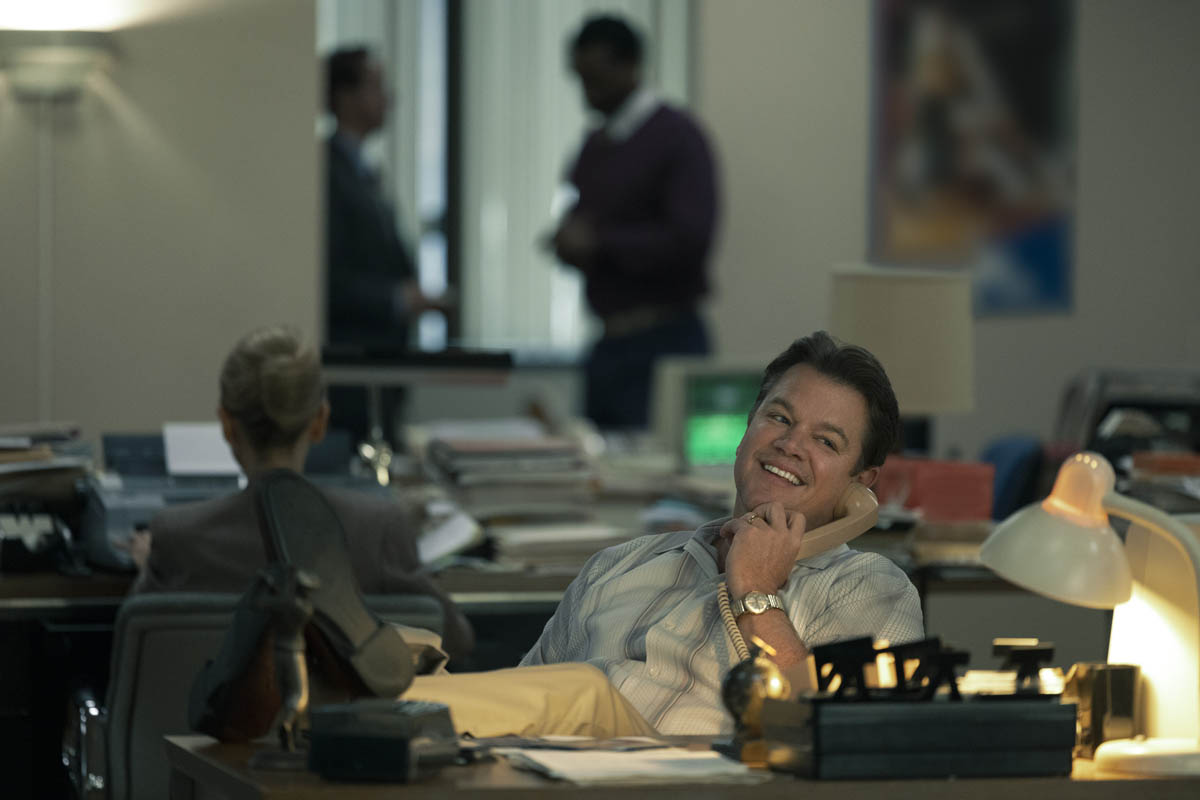
The next scene where Matt tells Rob about greatness, originally in the script was supposed to be in the huddle with Dean Smith, and Dean was going to be drawing up the play for Michael. But there’s no footage of that. There’s nothing archival. We weren’t going to shoot it. We weren’t going to recreate it.
The night before they shot it, Matt and Ben came to my cutting room and we watched all the archival stuff of that moment, and we tried to figure out what story we should tell. So it was about him being a decoy and looking at Michael, and he’s relaxed and calling for the ball. Matt improvised what he would say in the room, and then the next day when they shot it, they shot a ton of material.
Matt was improvising and changing things, and he did it like 10 different ways. It was up to me to figure out. Matt was so impressed, he said, “Oh my God. I can’t believe you’re so good.” I said, “You’re a really good actor. This is a lot to do with you and less to do with me. I can’t make something great without great material.” That whole section is basically the first cut.
One of the scenes that I would think would have been quite difficult would have been the big pitch meeting to Michael and his family at Nike. You've got two things that I was thinking of as an editor: One is you can't really show Michael. The other is, of course, you've set up this great story about, “I have a dream.” You don't know it's going to get used later, but once they start playing the video, it's evident Sonny's going to call an audible and he does. Talk about building the tension of that and the truth of it with the reactions.That was the hardest scene in the movie.
We changed that around many times, and had to get the right amount of archival versus Matt. I tried to make Michael’s presence in the scene as big as it could be without showing him. The only time we see him talk in the movie is when he says, “Bulls colors,” when he sees the shoes.
It was a lot of painstaking work to get just the right moments of Viola and just the right moments of the dad, because they’re looking out for their son and making sure their son is being taken care of.
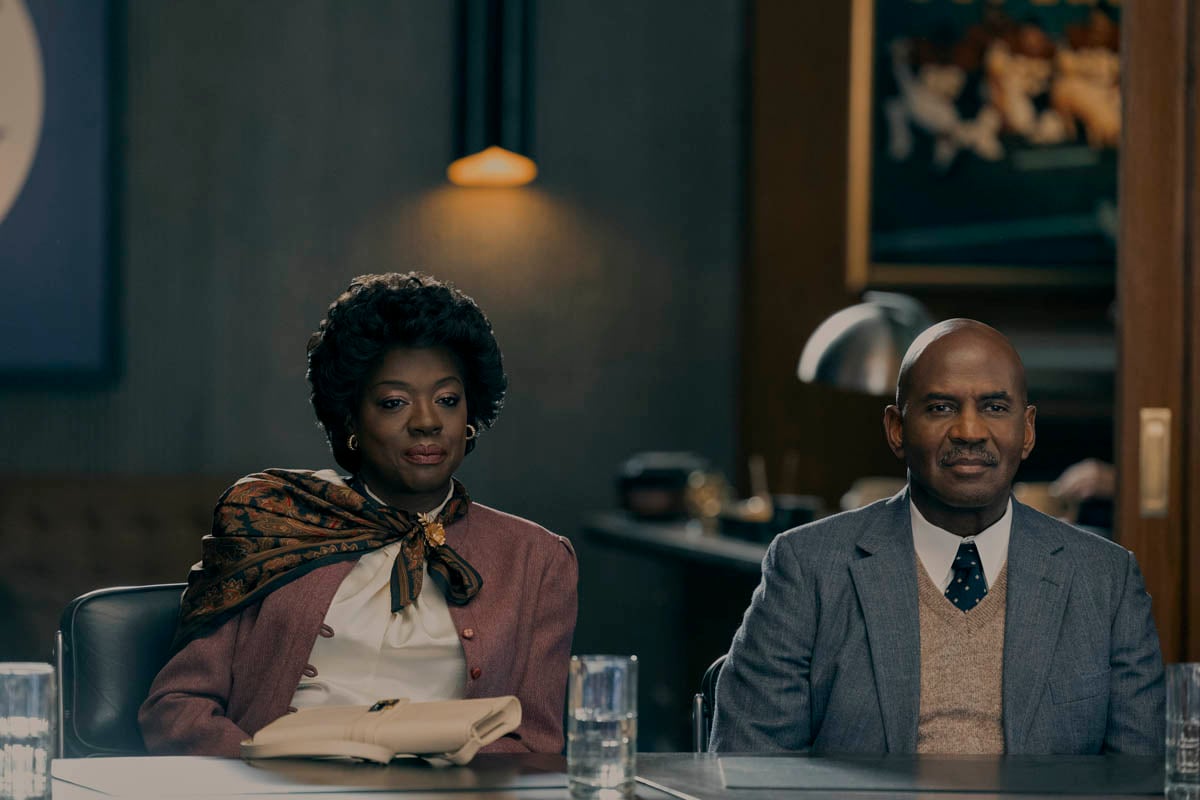
It's almost like trial and error. You try shading things one way or shading things the other way. How proud is the dad? When does he get serious?
When Michael Jordan’s father was found dead, we show the images of his father’s car that’s been shot up, the funeral, and a brief shot of the headline. We tried to use shots of his dad that are more somber, even though it’s in the future. Just to shade things one way or another. We finally got that part of it squared away and felt like we really nailed it.
There was one take of Ben where he improvised that whole thing about when he comes into the meeting late, and he says, “I cleared my schedule,” and he’s so over the top about it. He only did that in one take – including the stuff where he pushes the folder down and it doesn’t make it, and the stuff at the end where he says, “What was all that about paying the fines?” and “Never mind, I think I’ll be remembered.” That was literally all one take that he did. It wasn’t cut in at the beginning.
First, we put the first part in where he enters the room and tries to pretend he was late for a good reason. We put it in thinking, “Is this funny? Maybe it’s funny.” Then we played it for an audience and they went nuts.
Then we put the end part in too and made the whole thing much bigger. We had to steal a couple reactions of Bateman. We cobbled it all together and I think it holds up pretty nicely. We cheated a line of Matt Maher saying, “None of us at this table will be remembered,” to motivate Ben’s line. We kept layering things in and seeing how far we could push the comedy once we had the drama worked out.
Originally, I had a look in there where Matt [Maher] looks over at Howard White when it’s not going well and Howard shook his head as if to say, “No, it’s not.” It was too overt. So, then I just had his eyes, and it was just so much better. The audience just knows. He doesn’t have to do anything at all.
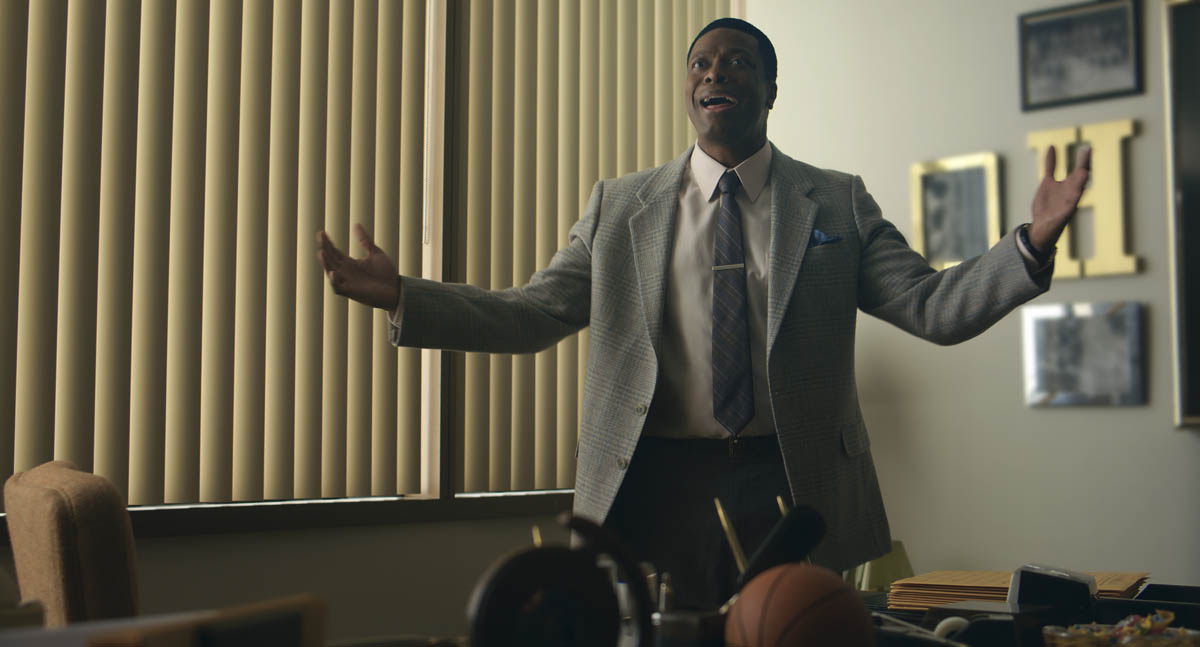
Then I was able to find a piece of Michael looking restless. There were moments that he gave me as an actor that were really helpful: he’s squirming in his chair, he leans forward, or he closes the folder in the foreground of the shot. It keeps him alive.
There's at least one scene with a Steadicam shot rotating around the actors.I had to do one of those and it can be hard. I don't know whether it's the rotation of them that's difficult, or if it’s because of who's talking and where the camera's pointed at different points of the dialogue. Talk to me about having to do those scenes.
There are two of them. One is very brief and was much easier, where we go from Nike to Converse to Adidas. They’re all talking about Jordan – basically, “Are we going to get a meeting? No. I’ll call.” and the guy’s pointing to Michael Jordan on the chalkboard and the guy says, “Scoreboard.” We’re switching directions all around with whip-pans. That was pretty simple because it was a couple of lines amd we were going in one screen direction.
But the scene you’re talking about is the night before the pitch meeting. It’s made to look like a little bunker. It’s just a cafeteria and it’s very gently lit, except for the table, and the camera’s going around clockwise and also counter-clockwise. Some takes were different speeds than other takes, and obviously where things were on camera was different every take. That actually took a lot of experimentation. How much cutting should there be? What lines do we need to see on camera?
Originally Ben had this idea of really cutting on the lines and having many more cuts. It was too much. You didn’t even need the lines on camera. You could hear them. Then you get a reaction like Maher. He’s got lines that are off camera. Then the camera arrives on him for just his realization that Sonny’s idea was the best idea. You only land on his nodding up and down, and it’s just enough.
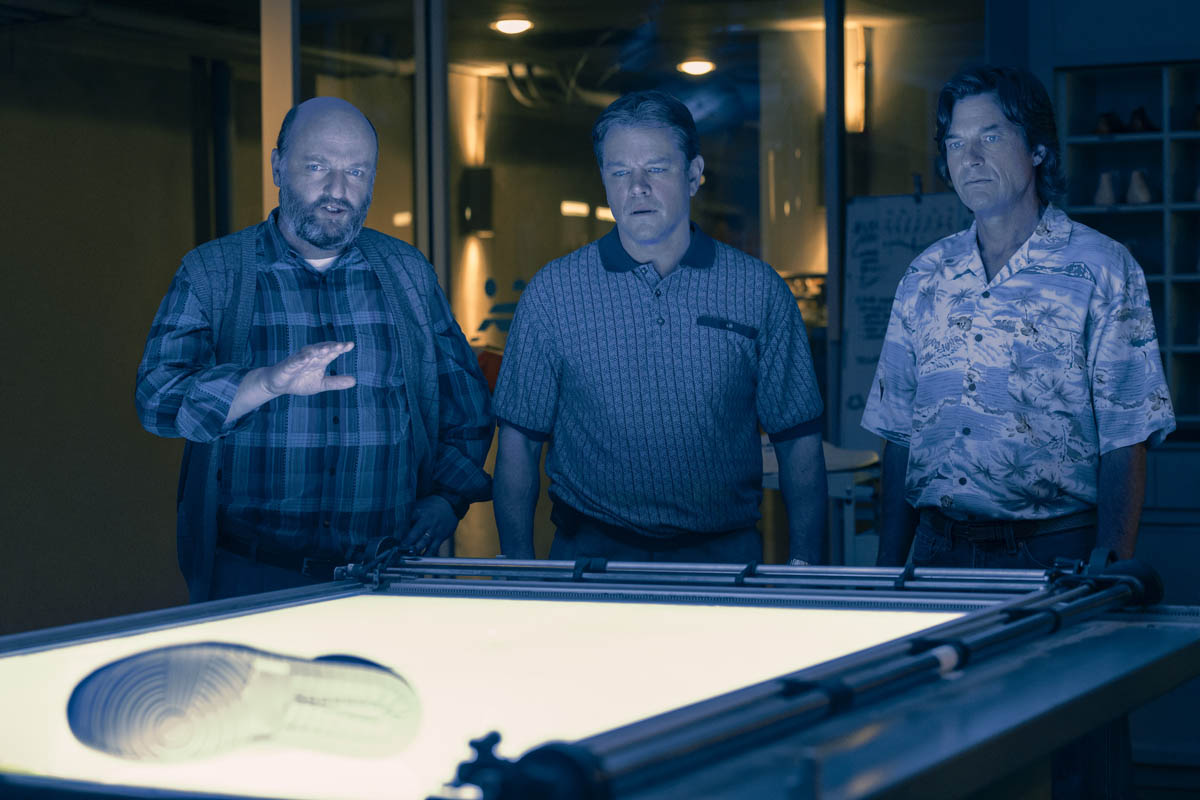
There were key things we wanted to get on in there. For example, when Ben realizes Sonny’s idea about him coming in late is a good idea, and he starts talking about himself in the third person. He only did that in one take. How do we get it in and feel smooth?
But then you find those moments where the end of one cut pushes the head of the next cut. Michael Mann talked to me about something Artie Schmidt said to him, where he wants the energy of the A side of the cut to push the energy of the B side of the cut. I always think about that when I’m editing. You try to get that feeling of propulsion, like one is pushing the other to create energy.
Dana Glauberman had a great quote that I loved: “It shouldn't be a period at the end of the scene, it should be a comma.”Everything's narrative drive or emotional narrative.
Talk about the scene at Tony Roma’s where Sonny’s talking to George Raveling. I know you had to deal with the 180 rule, as they had cameras on both sides, and you need to find the moments to be able to jump the 180 in that scene. Talk to me about building that and making it all seamless.It’s interesting because they shot “French overs” – when you’re behind the characters – and they shot traditional overs on the front side. The other camera – which was more roving around, a little more handheld, a little more verité – that was Ben [Affleck] operating the camera.
Originally, the first cut was much more rigorous in terms of when I crossed the line. Then I started adding in Ben’s footage, and there were really nice pieces where the cameras were racking back and forth between the two characters.
Then we just threw it all out the window. I just ignored the line because they were sitting there. You don’t get thrown. I tried to do it on motion so it wouldn’t be like being slammed in the head. Their dialogue is so rapid, and they’re so conversational. When I started crossing the line, and just using whatever shot I wanted – based on what each shot was doing for me emotionally or story-wise – it didn’t seem to matter.
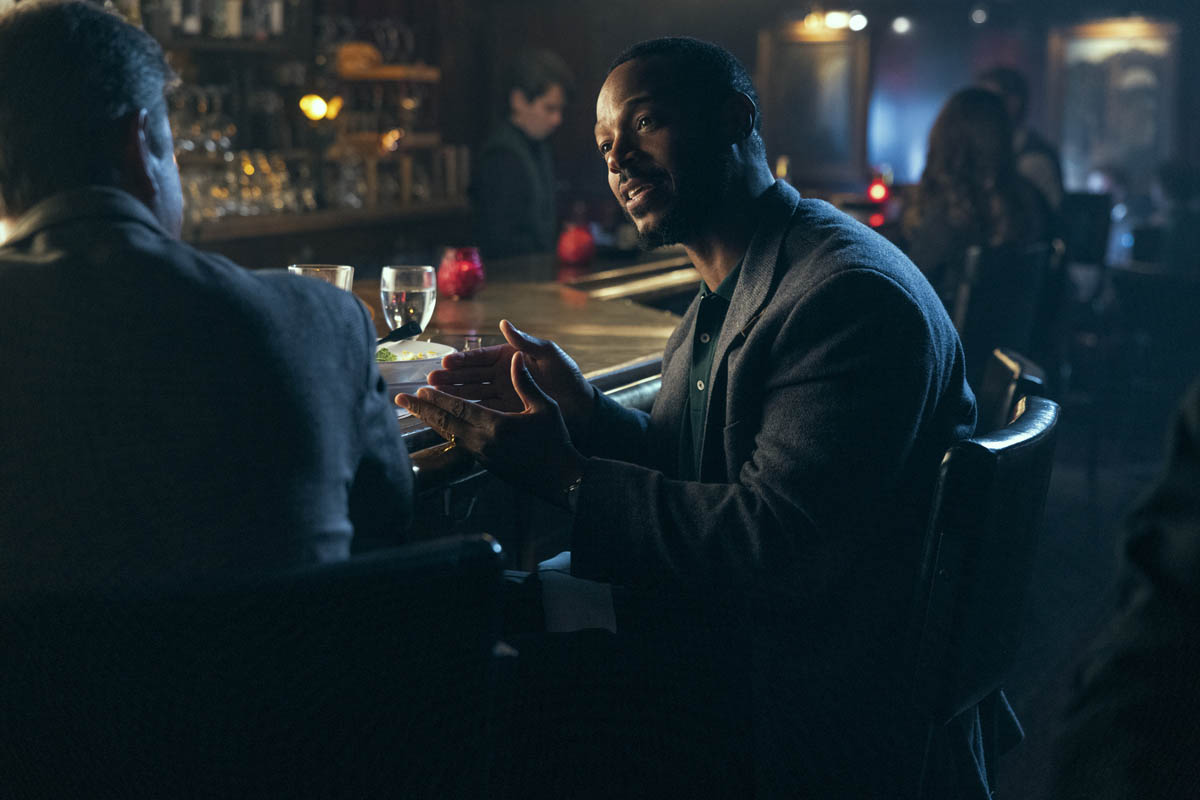
It was actually a real lesson because I was so determined to be really rigorous and strict. Then it became clear that it was much more natural feeling when we mixed it all up.
They did some cool improvising too. When he talks about “Some of the board members must be members of the clan,” that was not in the script. There was more dialogue that we trimmed down from that scene because there were redundancies.
We wanted to get that feeling of camaraderie – finishing each other’s sentences and reading each other’s minds. Also, the idea of day drinking. They’re just slamming beers down. That was the subtext of everything. We worked on that scene quite hard too. At the beginning, we were a little nervous about it, but then it became a lot of people’s favorite scene.
The story about George is true. His character was added in the movie specifically because of what Michael [Jordan] told Ben.
Ben went down and hung out with Michael six weeks before shooting. Michael didn’t read the script – it was just to make sure he was okay with the idea of making the movie. Because Ben said, “Look if you’re not cool with this, I won’t make the movie.”
Michael was cool with it and told Ben a lot of stories about various things, including stories about his mom and his family. He told them that George Raveling was one of the most important people when he came to his decision about going to Nike, because he really respected him, and he was an assistant coach at the Olympics.
So they put that scene into the movie and it just so happened that he had this incredible story about Martin Luther King. To be clear, I am in no way comparing Sonny’s pitch to King’s I Have A Dream Speech. But the point was using your instincts to feel what’s happening at the moment and adjust.
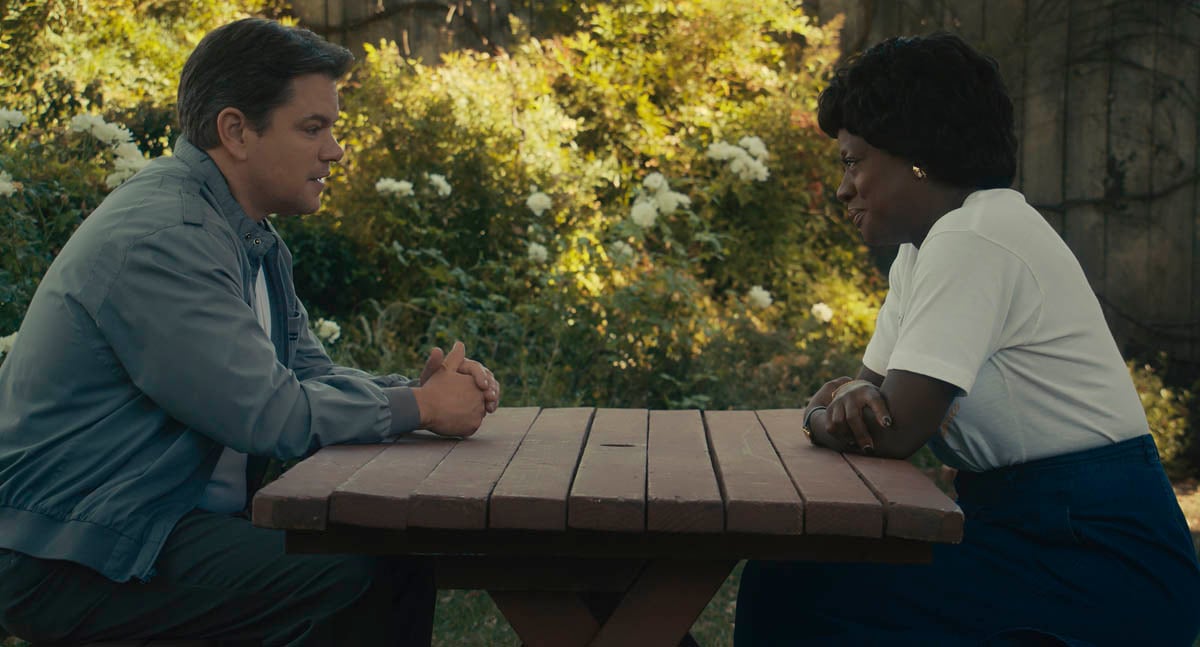
We have really tried to tell the story of the personal consequences of failing. When Jason Bateman says, “If this doesn’t work out – no more checks, no more jobs,” we really tried to personalize the stakes.
It’s about the people in the division that are going to lose their jobs. There’s a really personal toll. We tried to emphasize that through Jason’s story, with him getting a feel for all the people at work at Nike in that bullpen and including them as part of the story. So, when Sonny thinks it goes south and he looks at the bullpen, you understand that he failed everybody. These people are going to have no job and they’re probably all working paycheck-to-paycheck as it is. It was important to us that the story have real stakes and real consequences.
We all think of agents as coked-up, high-energy guys. Was the editing as fast as I remember or is it all just the actor's energy?It's Chris [Messina]. He’s such a great guy. I’ve come to know him over the years because he was in Live by Night, and he was in Argo, and his wife Jen [Jennifer Todd] used to run Ben’s company.
Ben just really let him go. He did all kinds of improv – a lot of the stuff in there about “Eating your nuts,” and all that was improvised. It’s a little up-cut in terms of using a lot of different angles, where instead you’d maybe hang on one shot. But not crazy. It’s Chris and his interplay with Matt [Damon].
They shot those phone calls simultaneously. The two sets were in the building but separated. Phone calls are always best when they’re shooting it live. They had individual mics so I can overlap dialogue as much as I want. When people are arguing you get that real banter that you otherwise just don’t when the script supervisor is reading the off-camera lines. They shot three cameras on Chris Messina and two on Matt. I had lots of coverage to give it energy.
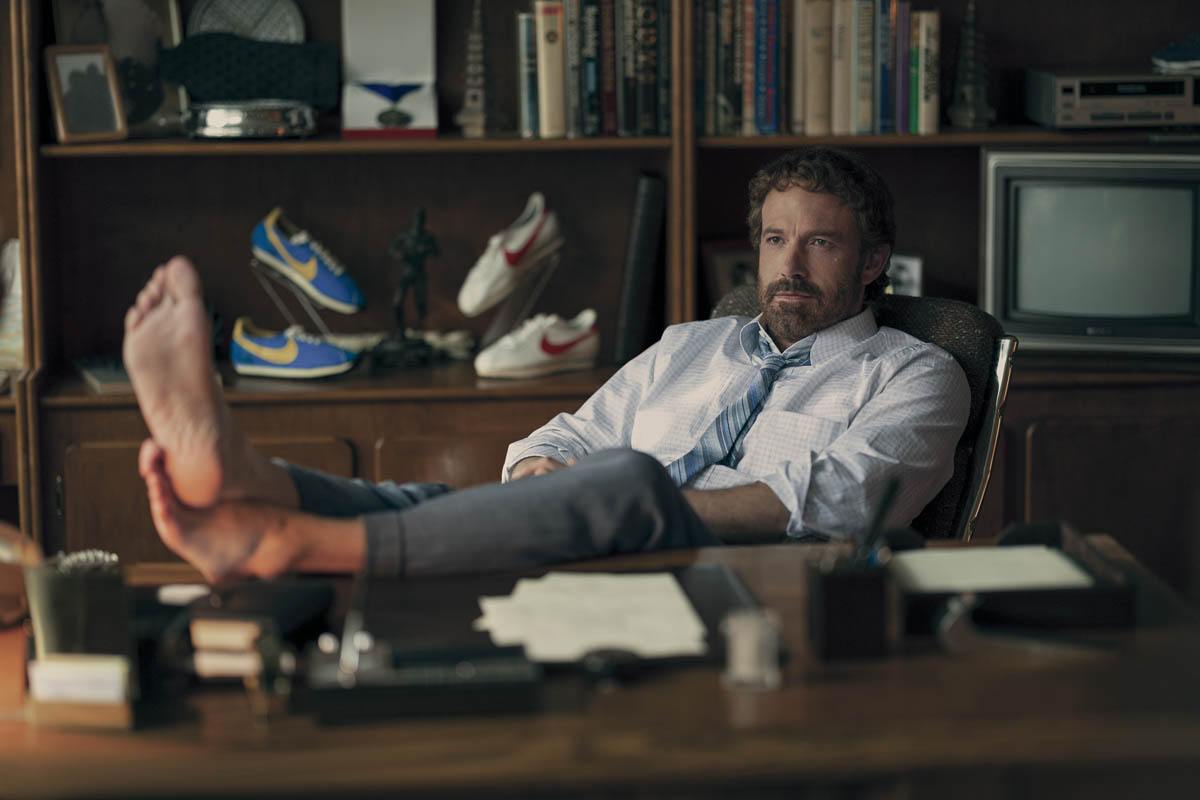
They went out with a drone and shot tons of exteriors of the building, especially the Nike building. That one was a really appealing shot that had the white of the top of the building entering the frame just like the coffee cup. It was on purpose, but it was luck. It wasn’t as though it was designed. That one just worked because Phil’s walking up the driveway after he has gone for a run, and it worked right into the parking lot. It was a beautiful dissolve. Then I had the coffee cup thing – it was just like, “Oh boy, I’m going to look smart.”
You mentioned that you’re directing. Talk to me about this opportunity, how it came about, and how you feel like you’re ready for it.The movie is called Unstoppable and it’s the true story of a guy named Anthony Robles, who won the NCAA championship in college wrestling in 2011. He was born missing his right leg.
The story is about him and his mother Judy Robles, who had an abusive second husband. They were living in poverty and Anthony had no opportunities for college after he won the high school national championship. He got no college offers. He and his mom were able to overcome these incredibly dire circumstances and turn his physical challenges into a positive thing. He became this incredible inspirational figure, who is now a motivational speaker. He goes around the country speaking to kids and to corporations. He is a Nike athlete for life and a broadcaster for ESPN.
I felt like it was a story I wanted to tell. I was looking for something to direct for about 10 years. Certain things came and went. This sort of stuck with me.
We developed a script, and then it went away during the pandemic. In September they restarted the project. I gave it to Ben, just to read it. I said, “Look, I’m not asking you to make this. I just want your opinion because I’ve been with it so long. I’ve lost perspective. Is this good?”
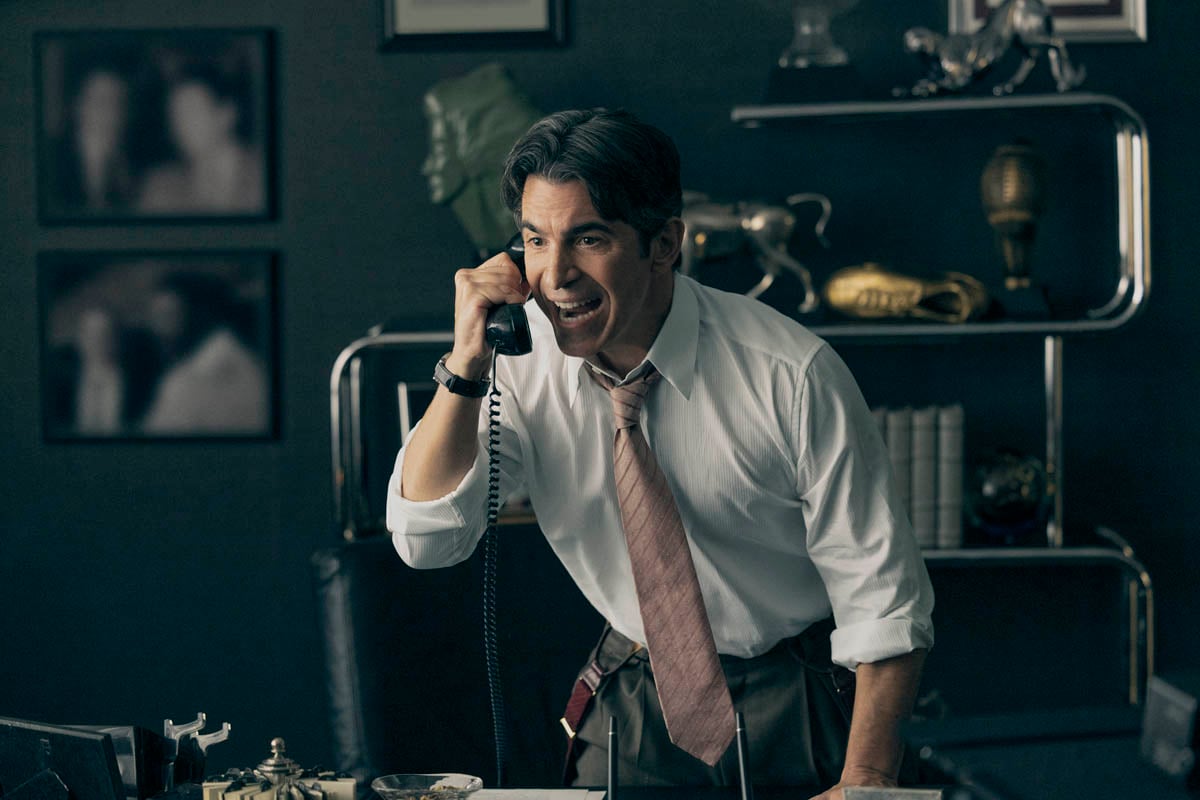
He read it and he loved it. He said, “We’ll make this. I’m not doing this because I’m your friend. I think it’s going to be a great movie.” Then Matt [Damon] and Michael Joe – who is another partner in Artist Equity – read it. Everybody really loved it. Off we went.
Coincidentally, there was a great role in it for Jennifer [Lopez]. [Jharrel] Jerome, who’s a phenomenal actor who won an Emmy for the Ava Duverney mini-series When They See Us about the Central Park Five, was cast as Anthony Robles.
We’re five weeks from shooting. It’s been so much fun and challenging and terrifying all at the same time. Every day there’s a hundred decisions that I can’t change ever. It costs money – a lot of money – but it’s been fantastic. I have a great group of people, a great crew.
I’ve worked with many great directors over the course of my career. Not that I could ever be anywhere near Ben [Affleck] or Michael Mann or Kathryn [Bigelow] or Paul Greengrass. But I do feel I’ve learned all these lessons and I wanted to tell the story. So I figured I got to try and do it.
The big question is: who’s editing?Actually my ex-assistant, Brett Reed. He’s been with me as a PA and as an assistant. He was a first assistant for almost 18 years, and he’s been cutting on his own for about 7 or 8 years.
He is a wonderful editor. Ben – who is producing the movie – and I have a lot of faith in him, because he won’t bullshit me. He’s somebody who’s going to be really honest, because as an editor if you’re worrying about your own job, you’ll just say “Yeah, it’s great.” Brett will tell me, “No, it’s shit.” I want someone to be brutally honest with me, and then I’ll co-edit with him in post. I can’t imagine that I won’t be behind an Avid at some point.
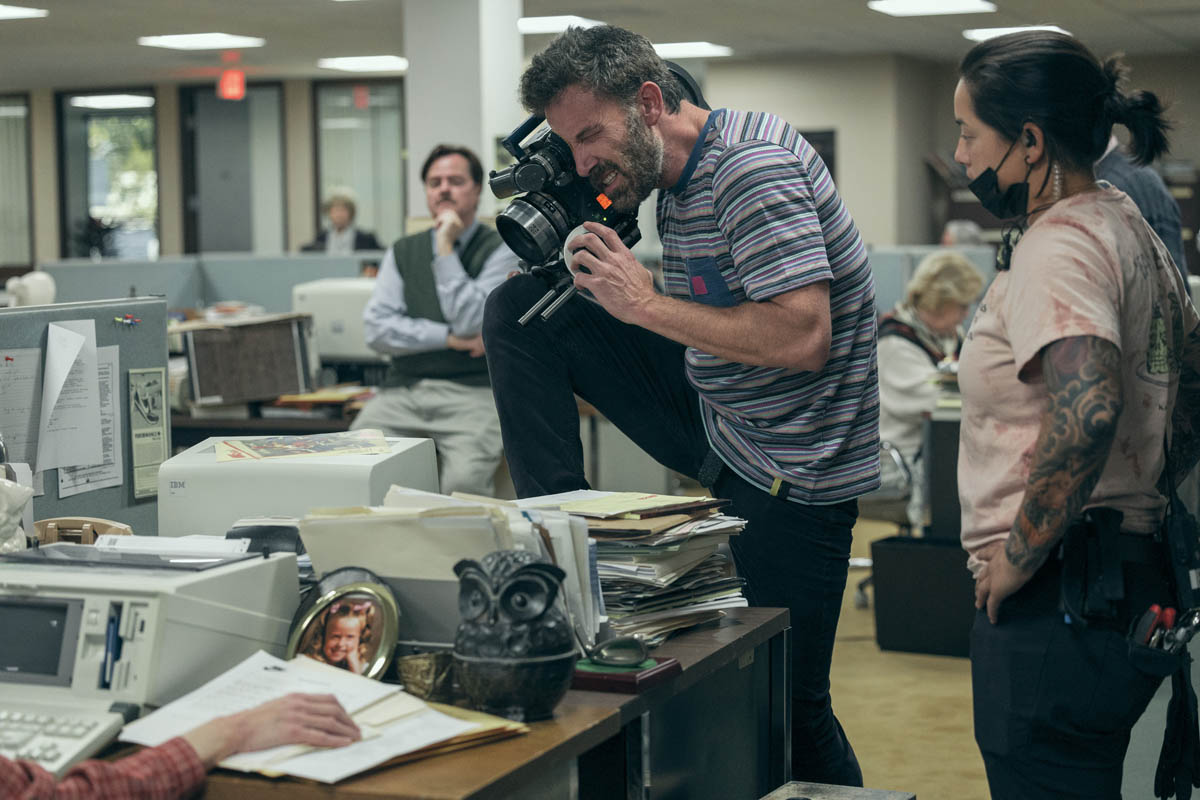
Yeah, he does. He has a machine at home. All the dailies go to me, and all the dailies go to him.
There was so much footage, he was constantly pulling selects upon selects and putting them to music. I would move them around and hopefully make it better.
With some scenes he would exchange a couple performances, or cut to a B camera. Sometimes he would cut a whole scene, and then I would show him my version. Mostly we went with my version. I hope so, I’ve been doing it longer. But it was actually really helpful, and it’s really fun because we can make fun of each other. I know that even if it’s not a great edit, it shows me what he wants. I can smooth it out and make it into something that cuts a little better.
Absolutely. There's a long line of great editors turned directors, I think, so hopefully that's you next.I’ll settle for good.
Billy, thank you so much for joining me to talk about Air. I really appreciate it.Always great to talk to you, Steve. Thank you
